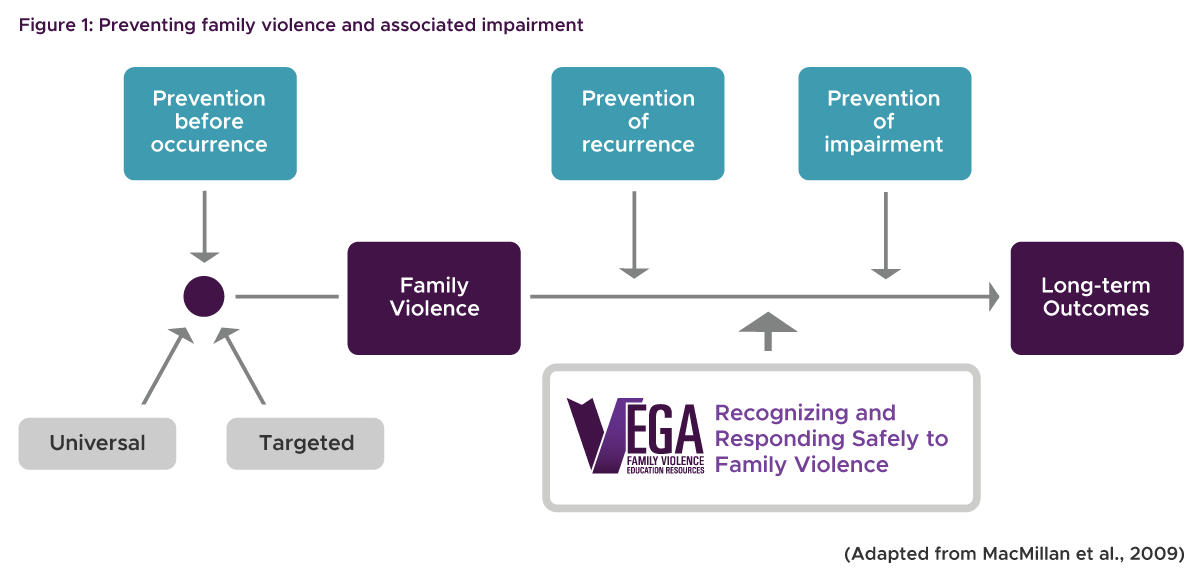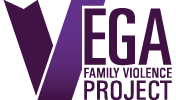Project Overview:
The VEGA Project has created pan-Canadian, evidence-based guidance and education resources to assist healthcare and social service providers in recognizing and responding safely to family violence. The VEGA Team developed these resources in collaboration with expert consultants and organizations, 22 national organizations and other stakeholders. VEGA focuses on three main types of family violence: child maltreatment, intimate partner violence, and children’s exposure to intimate partner violence.
VEGA has developed an online platform of education resources comprised of learning modules (e.g., care pathways, scripts, how-to videos), interactive educational scenarios and a Handbook. These resources are based on a series of systematic reviews summarizing the scientific evidence. VEGA’s family violence education resources will assist healthcare and social service providers (including students) in addressing the needs of those who may have experienced family violence. In addition to addressing violence that is happening, VEGA seeks to reduce the experience of any associated problems and prevent further violence (see Figure 1 below).

Key Activities and Outputs:
- Conducted systematic reviews of the evidence on recognizing and responding safely to child maltreatment, IPV and children’s exposure to IPV, in coordination with the World Health Organization (WHO) officials and parallel WHO child maltreatment guidance development processes (Reference Available Online Here)
- Conducted reviews of qualitative research related to priority topics identified by the National Guidance and Implementation Committee (NGIC), including research related to mandatory reporting and voices of those with lived experience.
- Developed pan-Canadian guidance on family violence for healthcare and social service providers
- Developed a competency framework
- Developed foundational and accreditation-ready family violence education resources that:
- can be used by pre- and in-service healthcare and social service providers, across a range of settings (e.g., hospitals, single provider practice, etc.,)
- are based on the following principles:
- evidenced-based
- lifespan approach
- safety (e.g., trauma- and violence-informed, cultural competency, etc.,)
- sex- and gender-based
- Produced an integrated knowledge mobilization strategy to ensure responsive, needs-based product development and ongoing communication with stakeholders
- Developed an evaluation framework so that uptake and implementation of the resources can be evaluated

